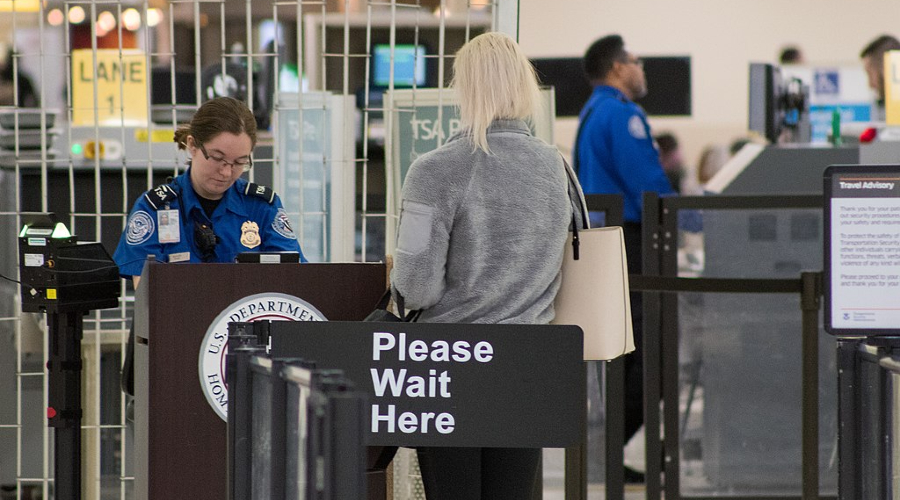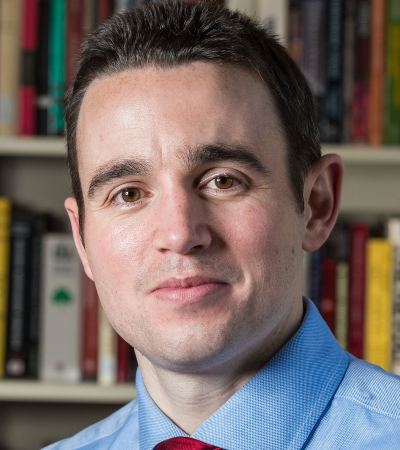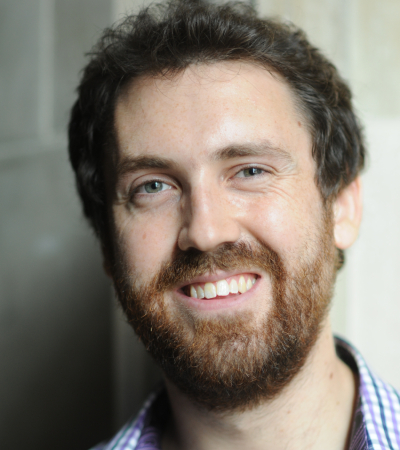How Education Decreases the Fear of Terrorism
Part of terrorism's power is its ability to generate fear disproportionate to the actual threat. Research shows that learning about terrorism curbs this effect.

Published by The Lawfare Institute
in Cooperation With

Editor’s Note: The gap between the risk of dying from terrorism and the fear of it is large. This misperception can help the terrorists, making their violence more consequential and giving their hateful ideas more attention than they deserve. Scholars Peter Krause, Daniel Gustafson, Jordan Theriault and Liane Young offer a way out. They find that education about terrorism can reshape perceptions, leading to a more accurate view of the danger.
Daniel Byman
***
Counterterrorism efforts since 9/11 have limited the average number of Americans killed on U.S. soil from all types of terrorism to 23 people per year, but those efforts have been unable to quell Americans’ unrelenting fear of terrorist attacks. About two-thirds of Americans have consistently reported worrying “a fair amount” or more about a terrorist attack on the United States in polls over the past two decades, and at least one-third have worried that they or a family member will become a victim of terrorism. This outsized fear represents the terrorists’ greatest tool, making millions scared of a few and leading to tremendous attention to terrorists’ words and actions. This fear helped spur the United States to fight numerous costly, largely ineffective wars across the Middle East and North Africa, restrict civil liberties and immigration, massively increase government defense spending amid ballooning deficits, and cause widespread stress and anxiety among the public—sometimes leading to chronic posttraumatic stress disorder.
Unfortunately, even those experts like John Mueller who argue that Americans significantly overestimate the threat of terrorism conclude that “[t]here seems to be little, if anything, policymakers can do to reduce the fear of terrorism—whether it is through shouting from the bully pulpit or through spending trillions of dollars to protect people from the feared hazard. If people want to be afraid, it seems, nothing will stop them.” Expert William McCants agrees: “As for how governments can calm their citizens, I’m at a loss .... Every attack is discussed endlessly on television and social media, which heightens fear of future attacks [and] makes citizens scared of one another.” If anything, existing research suggests that exposure to more information about terrorism, via either the media or exposure to others in the “Threat-Industrial Complex” who hype the threat for their own ends, increases the public’s fear.
In a new article published in the Journal of Conflict Resolution, we report on our surprising research findings that something can significantly decrease individuals’ fear of terrorism: education on the topic by the very professors who are sometimes labeled as part of the “terrorism industry.” We gathered evidence from an extensive series of experimental and observational surveys involving students in 31 terrorism- and non-terrorism-related courses at 12 universities. The “treatment” courses covered the definition, causes, strategies, and effects of terrorism and counterterrorism; the “control group” courses focused on other topics in political science and history. These courses varied from semester-long classes at elite American universities, to massive open online courses (MOOCs) with older students from across the globe, to online survey experiments with subjects watching a 10-minute video about terrorism or financial crises. Across all types of educational approaches, we found that the more individuals learn about terrorism, the smaller they perceive the threat to be to themselves and to the United States by a significant margin.
One fascinating implication of these findings is that they occurred even though the treatments—largely introductory classes on terrorism—were not designed to generate them. Most studies of attitude change (for example, for diversity training or environmental sustainability) are set up specifically to alter subjects’ attitudes in a certain way, yet they tend to show far less substantively significant attitude changes than our study. The vast majority of subjects in this study were in classes in which the professors did not even know the hypotheses being tested, and none were given any instructions on how to teach or what to teach. Professors simply administered the surveys to their students at the beginning and end of the semester.
By learning extensively about terrorism’s causes, strategies and effects in a dispassionate environment that separates fear from knowledge—rather than from emotional media accounts—people find that the unknown and scary become known and categorized. Individuals transition from seeing terrorists as crazed and irrational to more human and comprehensible, if still immoral. If terrorists’ central strategy is to inspire fear, then education is the antidote to inspire calm and resilience.
U.S. efforts should continue to focus on preventing attacks, but greater emphasis should be placed on educating and assuaging the American public. Our research shows that institutions of higher education are effectively informing Americans about terrorism—we found strong evidence of increased student knowledge—and tempering their fears of it in the process. At a time when state governments have significantly cut funding for universities and seek to exert greater control over curricula, our study reveals the value of academic freedom and analytic classrooms that engage deeply with important topics. Increasing funding for higher education in general, and about terrorism in particular, is a great long-term counterterrorism strategy to build an informed, resilient public. Otherwise, citizens’ understanding of political violence will come from conventional and social media accounts that are misleading, polarized and overhyped. Education about political violence fits well within a renewed civics education, which is severely lacking in the United States. The federal government funds a great deal of counterterrorism-related research through the Department of Homeland Security and its Centers of Excellence, but it is important to recognize the significant benefits that emerge from teaching, not just research.
Not everyone can take a semester-long course on terrorism, which is why we also tested the effect of watching a 10-minute informative video. This also led to a reduction in fear, albeit a smaller one. Public education campaigns that clearly and effectively define what terrorism is and explain its causes and effects, and how the government and citizens can work to lessen its impact, should also be part of this effort. Our study reveals how balanced, dispassionate and rigorous analysis of the phenomenon can make the public less susceptible to terrorism’s harmful psychological effects and, therefore, the terrorists’ designs.
A less fearful public would decrease the political demand for inflated threat assessments and excessive government spending, while also directly benefiting mental health and societal harmony. Politicians can be tempted to use fear to get the public to take an issue seriously. Our study shows that, with educational training, one can understand the capabilities of terrorists without fearing them—much like a military does with an enemy force.
U.S. policymakers today want to pivot from conflicts with extremist non-state groups to focus on powerful state rivals like China and Russia. Nonetheless, the struggle against terrorism remains—as does the U.S. public’s fear of it. The best way to gain greater freedom of action is to ensure the public has an accurate understanding of terrorism as a phenomenon. As the threat and associated fears of domestic terrorism in the United States begin to outpace those of international terrorism, the need for clear-eyed education and fear reduction has never been greater. Public education campaigns administered in partnership with experts on terrorism can help lead to a more informed, less fearful and more resilient public. This would represent a significant counterterrorism success in and of itself, while also providing the basis for improved domestic and foreign policy in the future.








